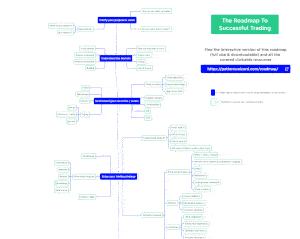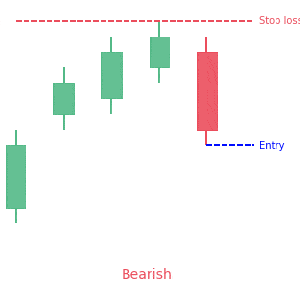Long-term Equity Anticipation Options or LEAP options are options contracts with long-term expiration dates. Their expiration duration is one or more than a year. Long expiration duration is the only difference between LEAPs and other types of options contracts. That means, they are functionally and technically just like other options types.
If you want to know about Long-term Equity Anticipation Options, then you are on the right platform. In this article, we are going to explain what LEAP options are and how to buy them. Let’s begin right away.
Long-term Equity Anticipation Options (LEAP options)
Long-term Equity Anticipation Options are options contracts with longer expiration duration. They grant holders the right, but not the obligation, to buy or sell the underlying security on or before the expiration date at a predetermined price.
Explanation
LEAP options are a unique type of options contract which were introduced after demand by traders looking for a prolonged investment but didn’t want to tie their investment for such a long time. Apart from longer expiration periods, they are similar to other options contracts. Now, a very pertinent question arises here. Why do traders and investors use LEAP options if they are similar to other options contracts?
There are several reasons why traders use LEAP options. For instance, investors looking to trade a long-term trend use them. They use it to avoid locking their capital for such a long period of time. Investors may use LEAP options to hedge a short or long position in their portfolio. In addition, Long-term Equity Anticipation Options don’t get much affected by Theta decay because they have a long duration to meet their objectives. However, investors may have to cope with certain limitations such as lesser availability and higher premiums.
How to buy LEAP options?
How to buy LEAP options and what are the key factors you need to consider when buying them? Let’s discuss all that step-by-step.
- First things first. Firstly, you need to choose the stock you are interested in investing in. Fortunately, you don’t need to follow any particular strategy here. You just need to select a stock that has long-term potential according to your analysis.
- The second step is to choose an out-of-the-money strike price. It isn’t important to choose only out-of-the-money options because in-the-money have strike prices below the current price.
- Thirdly, you need to see the delta value at the strike price. It should be 0.80 or higher than that. Why is it important? Because a delta value of 0.80 or higher means your options price will increase by 0.8 cents per every dollar increase.
- Finally, you need to decide the number of LEAP options calls to buy. One key point to remember here is that trade LEAP options just like you trade shares. That means you need to decide the number of LEAP options calls as per the number of shares you would like to buy. For instance, if you would want to buy 100 shares, buy just one call option. Similarly, if you would want to buy 200 shares, buy 2 call options, and so on.
Advantages and disadvantages of LEAP options
There are numerous advantages of trading Long-term Equity Anticipation Options.
- The prices of LEAP options are not much affected by price fluctuations of the underlying security. That means, if the price of the underlying security fluctuates, it won’t affect the price of LEAPs that much.
- You can easily sell the options whenever required because you have a prolonged expiration duration.
- You can also invest in equity indices when it comes to investing in LEAPs. So, you can hedge against dramatic price changes in the market as a whole instead of just one or a few securities.
- Traders also use LEAPs to hedge their long-term portfolios and protect their portfolios from drastic changes.
On the flip side, there are certain disadvantages of LEAP options that you need to consider when buying them.
- Market volatility and interest rate change heavily affect the prices of LEAPs.
- LEAPs lock and tie your money for the long-term and that’s why you may not be able to take advantage of other profitable opportunities arising in the meanwhile.
- You have to pay higher premiums as compared to other options contracts.
 Good Trading requires the Best Charting Tool!
Good Trading requires the Best Charting Tool!

 We loved Marwood Research’s course “Candlestick Analysis For Professional Traders“. Do you want to follow a great video course and deep dive into 26 candlestick patterns (and compare their success rates)? Then make sure to check this course!
We loved Marwood Research’s course “Candlestick Analysis For Professional Traders“. Do you want to follow a great video course and deep dive into 26 candlestick patterns (and compare their success rates)? Then make sure to check this course!